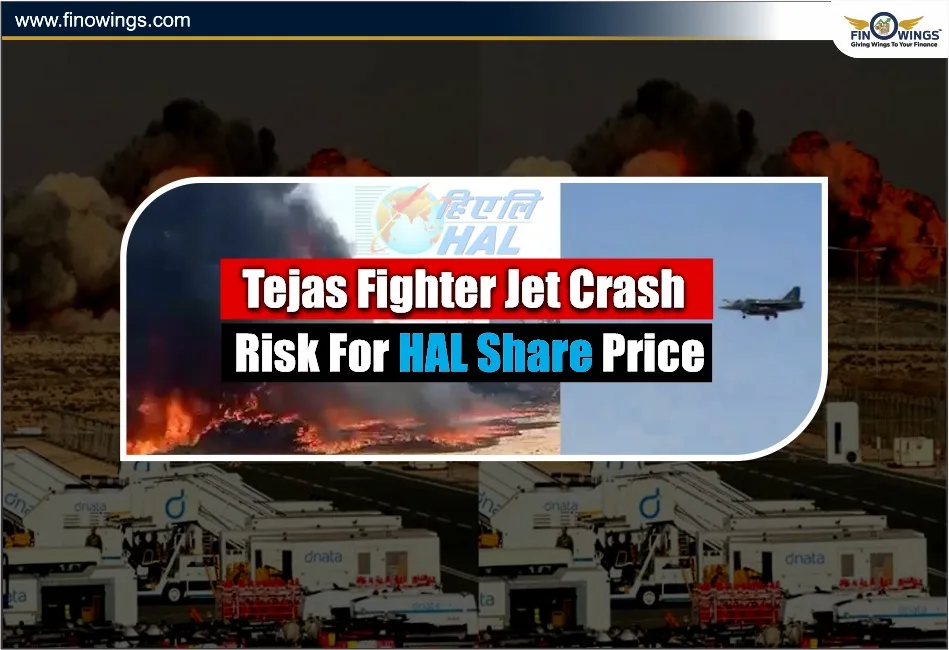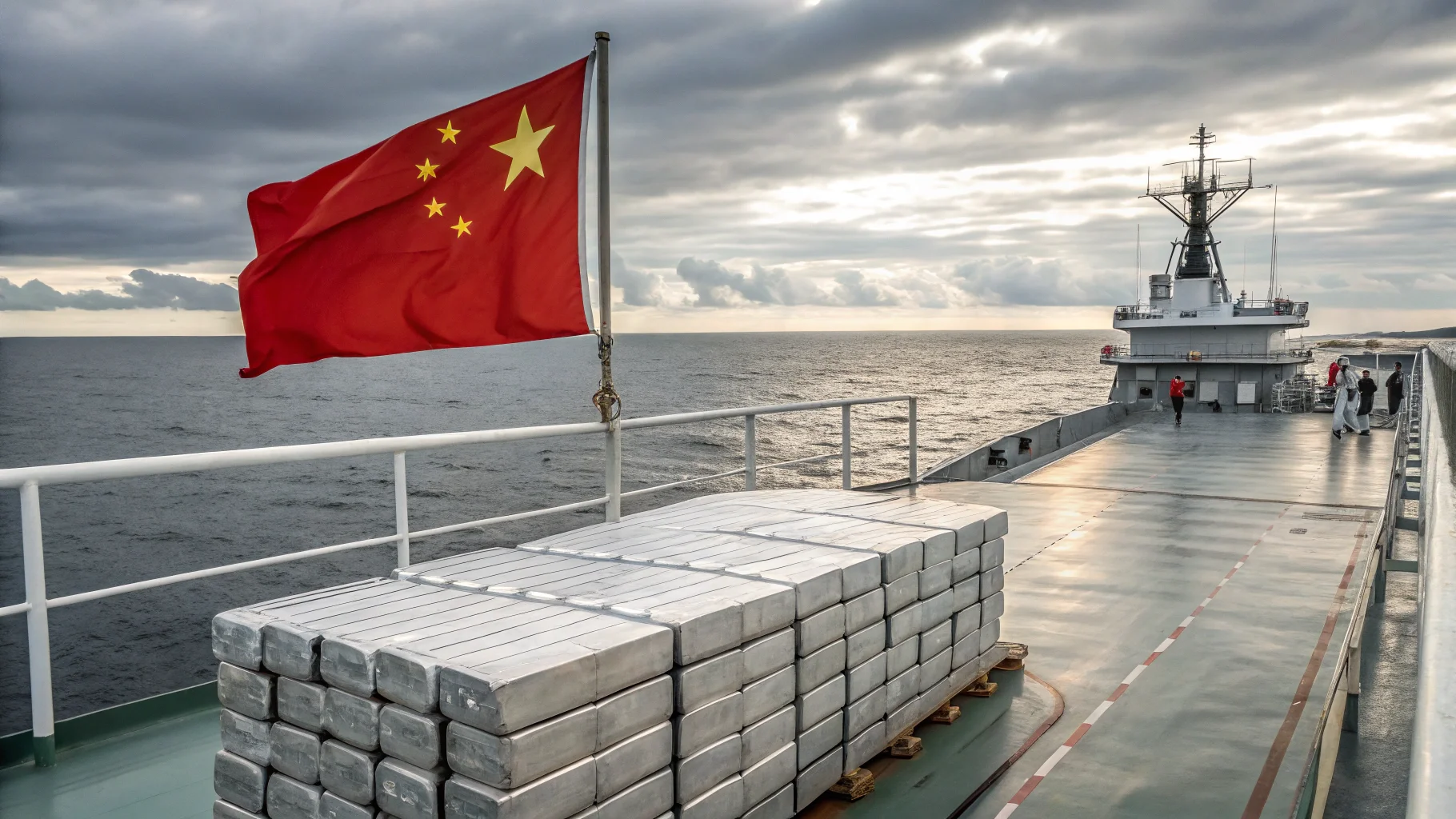Home >> Blog >> Tejas Fighter Jet Crash: Risk for HAL Share Price
Tejas Fighter Jet Crash: Risk for HAL Share Price

Table of Contents
The recent Tejas Fighter Jet Crash has garnered enormous interest from the nation and sparked conversations on the defence forums, aviation experts, and, most importantly, the stock market. Investors may worry about the fallout from the crash of any military aircraft, and, in this case, the attention is on Hindustan Aeronautics Limited which is the manufacturer of the Tejas Light Combat Aircraft (LCA).
This blog aims to provide a comprehensive, data-based, and investor-centric analysis focusing on the possible Tejas crash and whether this unfortunate incident has any significant impact on the HAL share price. If you are tracking HAL investors, defense stocks, or the latest Tejas fighter jet news, this article will provide you with the most helpful information.
What Happened? Overview of the Tejas Fighter Jet Crash
At the Dubai Airshow on Friday at 2:08 p.m. (local time), the Indian Air Force's Tejas aircraft enthralled the audience with an aerial maneuver. The next minute, it appeared to lose balance before falling to the earth and crashing, and thick black smoke billowed from the collision scene. The IAF confirmed that the pilot of the aircraft Wing Commander Syal died in the crash.
The Indian Air Force's Tejas aircraft captivated the crowd with an aerial maneuver at the Dubai Airshow on Friday at 2:08 p.m. (local time). Thick black smoke billowed from the collision scene as it seemed to lose equilibrium and then tumble to the ground. IAF Wing Commander Namansh Syal, the aircraft's pilot killed in the collision. (Source: India Today)
Who was Nemansh Syal?
After Tejas crashed at the Dubai Air Expo, people took to the internet, and “Nemansh Syal Tejas crash” was among the top queries searched on Google Trends.
During a demonstration flight at the Dubai Air Show on November 21, 2025, a Tejas aircraft crashed, killing Namansh Syal. He was well-known for his exceptional service and discipline at the age of 34.
Service Commissioned: Syal was commissioned in the IAF on December 24, 2009. He was an experienced pilot with training in the Sukhoi Su-30 MKI and MiG-21.
Personal life
His birthplace was the Kangra district, Himachal Pradesh, India. Syal was born into a military family. His father served in the education department after retiring from the IAF. His wife, Afshan Syal an IAF Wing Commander and their small daughter survive him.
When a Tejas aircraft accident happens, there is a lot of concern about:
-
The reliability of the aircraft.
-
The quality of the manufacturing.
-
The technological capabilities of HAL.
-
The inflow of defence contracts.
In the design previously mentioned above, there is no immediate evidence of a flaw. Other than:
-
The actions of the pilot.
-
The weather.
-
Technical issues outside the primary design.
-
The aircraft was not maintained.
Knowing these issues will help guide investors to not make rash decisions.
Tejas Crash Impact
Right after the Crash of the Tejas Fighter Jet, there was a lot of activity on the internet surrounding:
-
“HAL share price fall” is a trending search on Google
-
The reliability of the Tejas programme was a hot topic.
-
Visibility surrounding future orders was a concern.
-
However, in the past, even with negative news, HAL stock remained strong.
One specific incident is not enough to change long-term defence contracts because:
-
HAL jets are already in deployment.
-
Heavy reliance of the Indian Air Force on local vendors.
-
The government is supportive of local fighter programmes.
-
There are extensive timelines of more than a year in the Tejas Mk1A, Mk2, and AMCA programmes.
In summary, introducing this news will widen the short-term range. The long-term premise of HAL is still valid.
Will HAL Share Price Fall After Tejas Jet Accident?
In assessing the HAL share price, it would be advantageous to split the impact into two parts:
A. Short-Term Reaction
The stock market is reactive to the news, particularly negative news. Concerning defence-related accidents, the market often sees:
-
Shoots of temporary selling pressure.
-
High volatility within a single day.
-
Emotion-induced considerations of fear by the retail market.
Investors of HAL should be able to withstand the temporary drop, often 1-3%, depending on the market's short-term sentiment.
B. Long-Term Trend
For the long term onwards, greater growth becomes a function of;
-
Order Book
-
Revenue Viability
-
Profitability Trends
-
Execution Capability
Future defence contracts HAL possesses:
-
Large Tejas Mk1A contracts.
-
Active helicopter procurement contracts.
-
Development projects related to the AMCA.
-
Tejas tied export projects.
These multi-year contracts provide some assurance that no single news event, even that pertaining to a Tejas fighter jet, will hinder HAL's progress into the future.
Why the Tejas Crash May Not Hurt HAL's Fundamentals
1. Government Backing
And as with all fighter jets, Tejas is a representative of India’s flagship indigenous programme. The Government will not downscale, nor will they remove their support for the programme, regardless of an accident.
2. Incident Investigation Is Standard Practice
Just like India’s global allied defence units, India scrutinises every case and implements corrective actions, and makes upgrades.
3. Tejas Mk1A Delivery Commitment
HAL has begun delivering upgraded Tejas Mk1A jets, which include:
-
Enhanced avionics
-
Superior radar
-
Advanced weapons systems integration
-
This cements future revenues with HAL.
What Should HAL Investors Do Now?
Investors need to think rationally and not react impulsively to headlines. Investors should rather focus on:
A. Waiting For Official Inquiry Reports
Investors jump to conclusions and make assumptions too early, causing negative outcomes with their investments.
B. Evaluating The Stock’s Support Levels
HAL generally tends to find support on news-driven dips. Buying near strong support typically provides good outcomes for investors with a long-term focus.
C. Keeping An Eye on New Government Announcements
The defence ministry’s reassurance typically provides quick stabilisation for the stock.
D. Focusing on HAL's Long-Term Vision
The overall trend for Hindustan Aeronautics Limited stock is positive because of:
-
India's emphasis on self-reliance in the defence sector.
-
Interest in exports from Southeast Asia, Africa, and South America.
-
HAL's order book is solid with ₹1.4 lakh crore plus.
-
This will tip the scales in favour of the positive.
Historical Examples
Military aviation has accidents and is no different than other sectors:
-
F-16s in the U.S. crashed.
-
Accidents with the Eurofighter Typhoon.
-
Rafale has operational accidents.
-
Russian Sukhoi has had crashes.
Conclusion
The Tejas jet disaster may cause some bad sentiment in the near term, but HAL's long-term fundamentals are unaltered. Although there may be short-term swings in the price of HAL shares, long-term sustainability will be guaranteed by a strong order book, government support, and a varied defense portfolio.
Investors need to stay calm, monitor HAL officially, and concentrate on HAL’s continuing structural development in the defence industry.
DISCLAIMER: This blog is NOT any buy or sell recommendation. No investment or trading advice is given. The content is purely for educational and information purposes only. Always consult your eligible financial advisor for investment-related decisions.
Author
Frequently Asked Questions
The Tejas crash may cause short-term volatility in HAL share price due to negative sentiment, but it is unlikely to affect HAL’s long-term fundamentals. HAL has a strong order book, government backing, and multi-year defence contracts that prevent any major sustained fall in the stock.
No immediate evidence suggests a design flaw. Crashes can happen due to weather, pilot error, or technical issues unrelated to manufacturing. The Indian Air Force and HAL will conduct a detailed investigation, and corrective measures—if needed—are standard practice.
Defence orders are long-term and backed by government commitments. The Tejas Mk1A, Mk2, and AMCA programmes are multi-year projects, and one isolated incident does not impact contract flows. HAL’s role in India’s indigenous defence manufacturing remains strong.
A military aircraft crash always draws public attention. In this case, investors are watching HAL because it manufactures the Tejas LCA. Searches like “HAL share price fall,” “Tejas crash impact,” and “HAL stock news” surged after the event, creating short-term market reactions.
Investors should avoid emotional decisions. It’s better to:
– Wait for the official inquiry report
– Track key support levels for HAL stock
– Monitor government announcements
– Focus on HAL’s long-term growth drivers like export interest, order book strength, and defence modernisation
Long-term investors typically benefit from holding rather than reacting to momentary fear.

















.webp)


